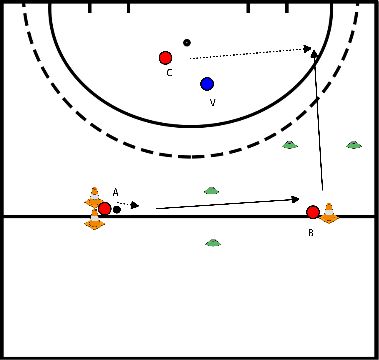Hockey drills
Dummy:
- The player does three passes behind the dummy and rounds on target.
- You can also do this exercise in relay form (do emphasize the proper execution of the exercise and not the speed).
Points of attention:
- With the dummy, it is important that you pretend to pass to the left, but eventually accelerate right around the pawn.
- Make sure you step out well with your left foot and pass the ball well under you.
- After your move, accelerate briefly to the next double pawn.
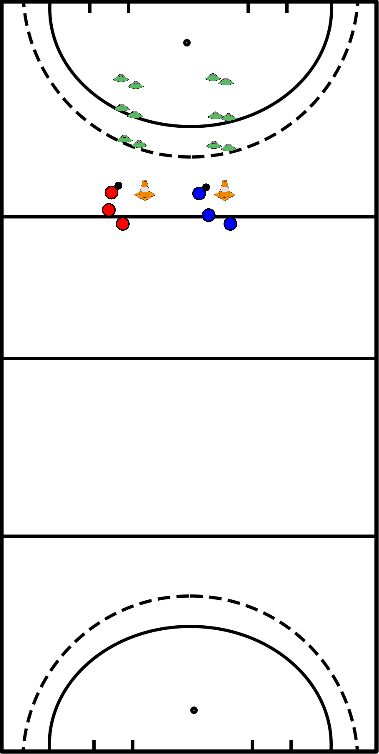
- A starts with the ball and must have 2 passing options on either side
- If A pushes the ball to B, C must run so that B also has 2 play-off opportunities again
- The person in the middle wants to take the ball away
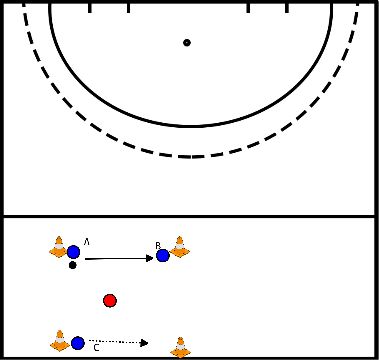
- A starts with the ball and passes it wide to B
- B takes the ball and passes to C
- C comes to the touchline
- C takes the ball and plays a 1:1 with the defender
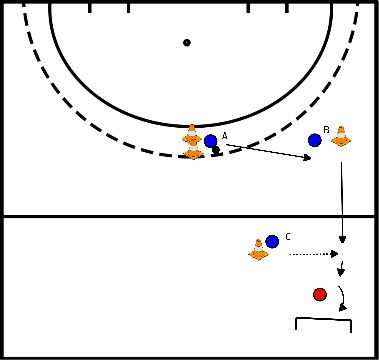
- A starts with the ball and gives a hard push forward.
- B comes running in and takes the ball, then turns away.
- Floats around on the pawns, lines up the ball and rounds on goal.
Plot exercise on 2 sides.
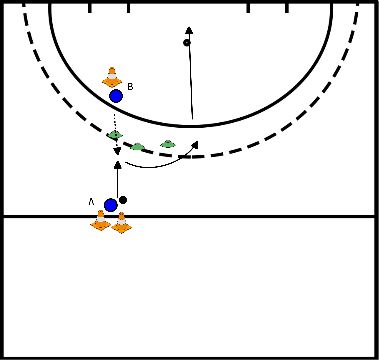
- A starts with the ball and gives a hard push forward.
- B comes running in and takes the ball, then turns away.
- Floats around on the pawns, lines up the ball and rounds on goal.
Plot exercise on 2 sides.
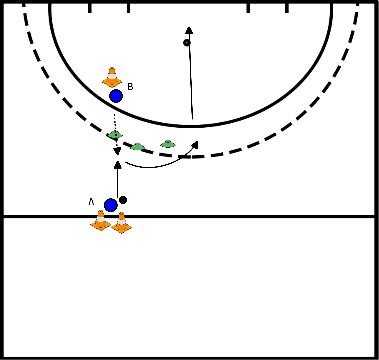
1 vs. 1
- Attacker blue plays the ball with a push pass to defender red.
- Defender red accepts the ball and plays the ball with push pass back to attacker blue.
- Attacker blue takes the ball and plays a 1 vs. 1 with the blue defender in the square.
- Does the attacker win the duel he may score freely. The defender does not have to pass if the 1 vs 1 is lost in the square.
- If the defender takes the ball away, he makes sure the ball is played through the orange gate.
- The attack is finished when the attacker has shot at goal or the defender has played the ball through the orange gate.
Points of attention:
- Focus is both on defending -poking, sitting low, not stepping in- and attacking -tempoing, direction changes, etc.
- Depending on the number of players, the exercise can be plotted twice.
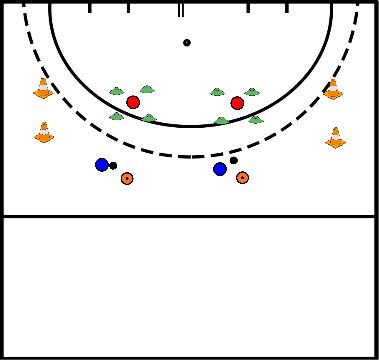
- Party form with the goals not in the middle of the field but on the right sides of the field.
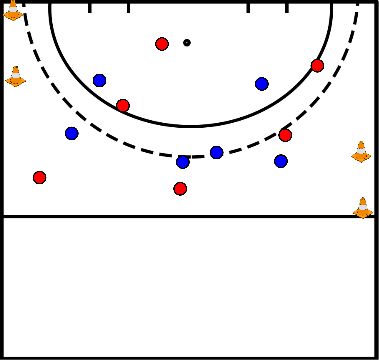
- A starts with the ball and plays the ball to B.
- B takes the ball and plays the ball to C.
- C takes the ball and makes an action near the pawns and rounds on goal.
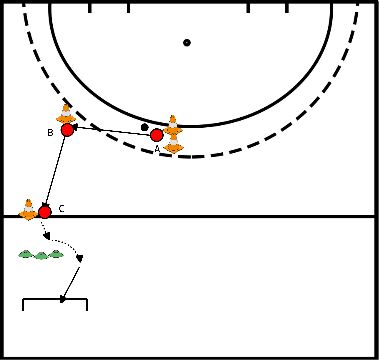
- A starts with the ball and passes it into the run at B.
- B takes the ball and floats onto the pawns at speed.
- B plays the ball to the offering C.
- C takes the ball and plays a 1 :1 against the defender.
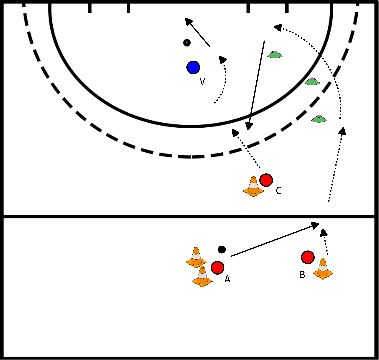
- A starts with the ball and floats to the pawns.
- A does a passing move to them and pushes the ball into B's run.
- B starts to run after A's passing move and takes the ball.
- B plays a 1:1 against the defender.
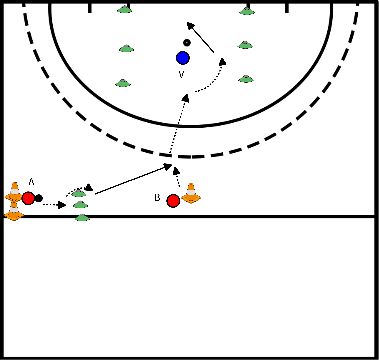
- A starts with the ball and push the ball straight ahead.
- B runs in a bit and takes the ball with the backhand -sitting low-.
- B takes the ball with the forehand and goes around the pawn.
- B push the ball straight forward to C who takes the ball with the backhand -staying high.
- C takes the ball it with the forehand and hits the ball on goal.
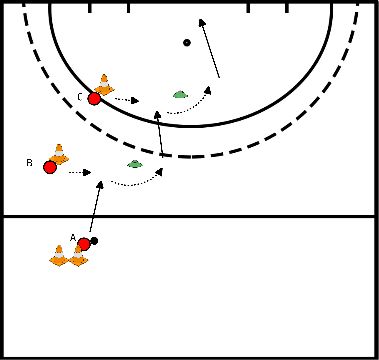
- A starts with the ball and drifts forward a bit and hits the ball through the gate to B.
- B takes the ball and floats forward a bit and hits the ball through the gate to the incoming C.
- C takes the ball and plays a 2:1 with B against the defender.
